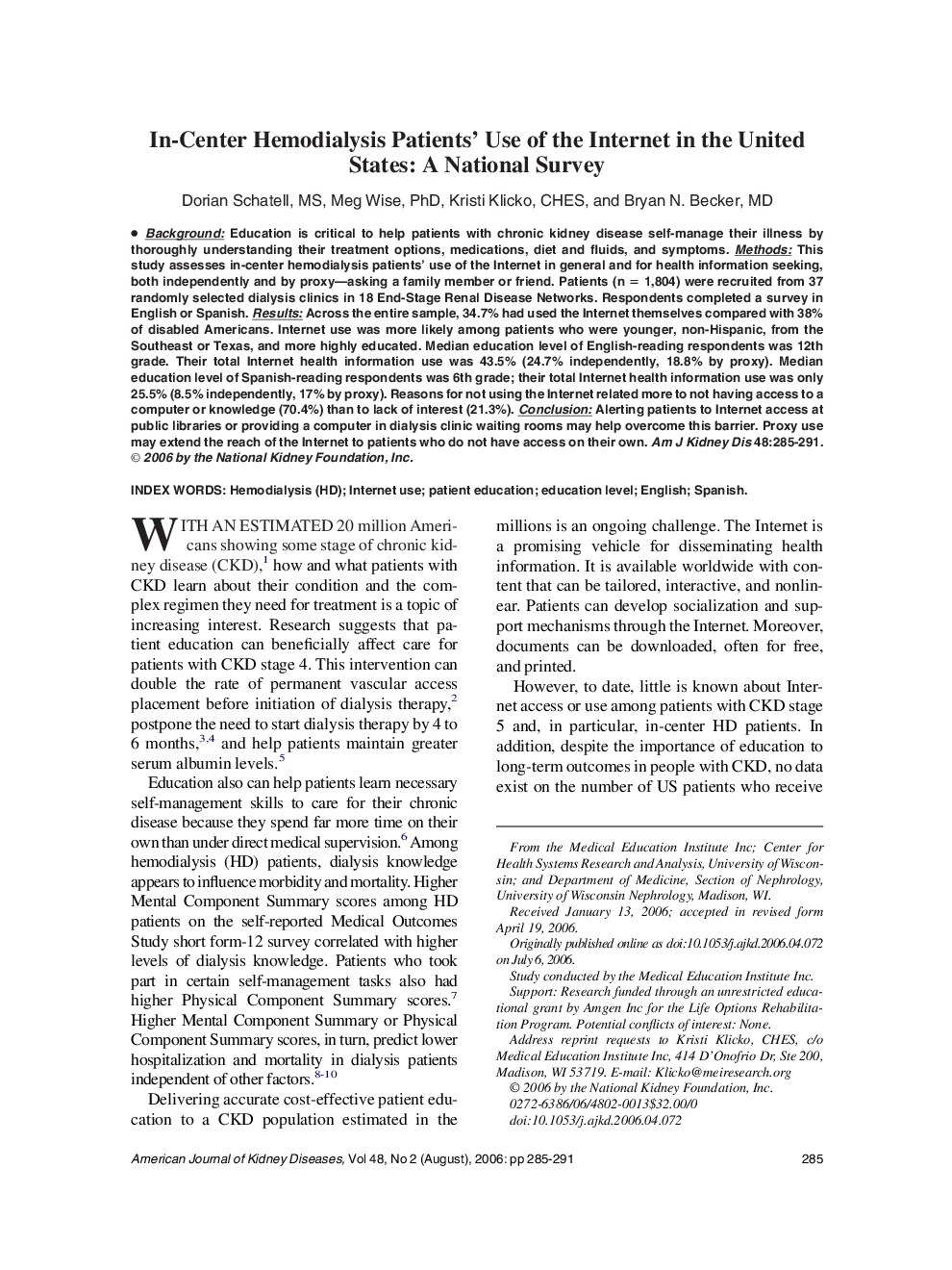| Article ID | Journal | Published Year | Pages | File Type |
|---|---|---|---|---|
| 3852009 | American Journal of Kidney Diseases | 2006 | 7 Pages |
Abstract
Background: Education is critical to help patients with chronic kidney disease self-manage their illness by thoroughly understanding their treatment options, medications, diet and fluids, and symptoms. Methods: This study assesses in-center hemodialysis patients' use of the Internet in general and for health information seeking, both independently and by proxy-asking a family member or friend. Patients (n = 1,804) were recruited from 37 randomly selected dialysis clinics in 18 End-Stage Renal Disease Networks. Respondents completed a survey in English or Spanish. Results: Across the entire sample, 34.7% had used the Internet themselves compared with 38% of disabled Americans. Internet use was more likely among patients who were younger, non-Hispanic, from the Southeast or Texas, and more highly educated. Median education level of English-reading respondents was 12th grade. Their total Internet health information use was 43.5% (24.7% independently, 18.8% by proxy). Median education level of Spanish-reading respondents was 6th grade; their total Internet health information use was only 25.5% (8.5% independently, 17% by proxy). Reasons for not using the Internet related more to not having access to a computer or knowledge (70.4%) than to lack of interest (21.3%). Conclusion: Alerting patients to Internet access at public libraries or providing a computer in dialysis clinic waiting rooms may help overcome this barrier. Proxy use may extend the reach of the Internet to patients who do not have access on their own.
Related Topics
Health Sciences
Medicine and Dentistry
Nephrology
Authors
Dorian MS, Meg PhD, Kristi CHES, Bryan N. MD,
